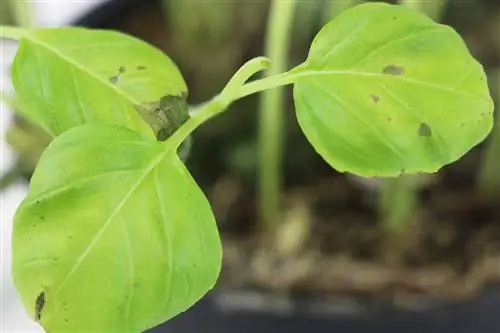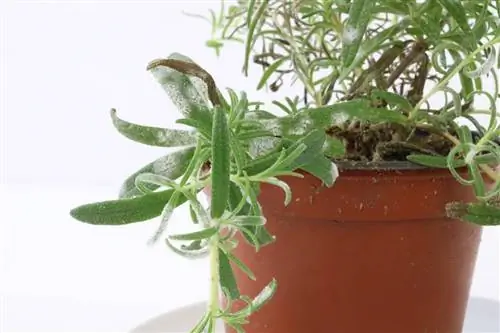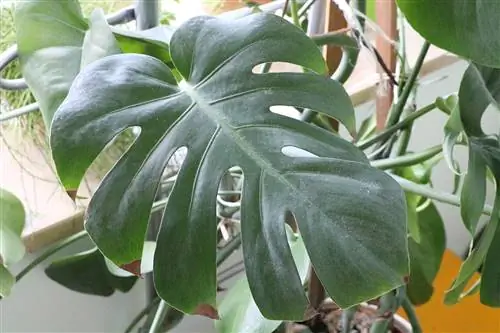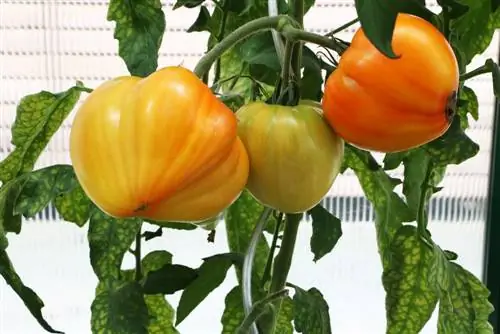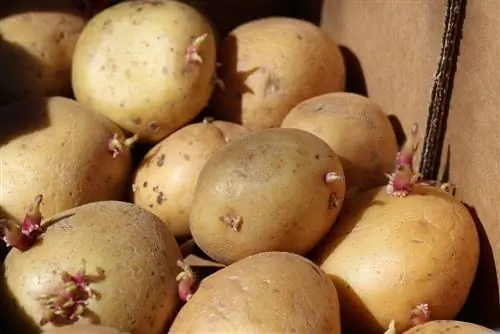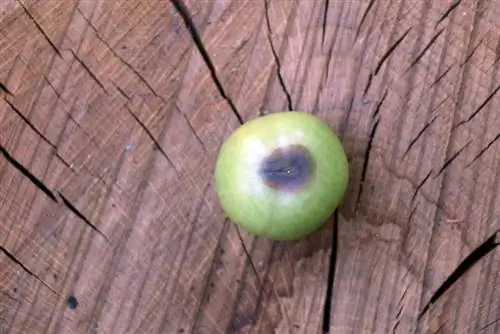- Author admin [email protected].
- Public 2023-12-17 03:39.
- Last modified 2025-01-24 12:45.
Basil bought in pots from the supermarket in particular tends to quickly develop black spots or spots on the leaves. This article explains why this is and what helps against it.
Make sure your basil is he althy
Basil (Ocimum basilicum) is available as a pot plant not only in garden centers, but now even in almost every supermarket. Unfortunately, most of the plants purchased there die within a very short time when they get home. The reasons for this are varied and usually before the entire basil weakens, signs such as black dots or spots appear on the leaves. It is therefore important to only choose he althy plants when purchasing:
- strong green foliage
- firm, straight stems
- no spots on the leaves (regardless of whether they are black or any other color)
- no insect infestation
- no webs between the leaves
- well-grown root ball
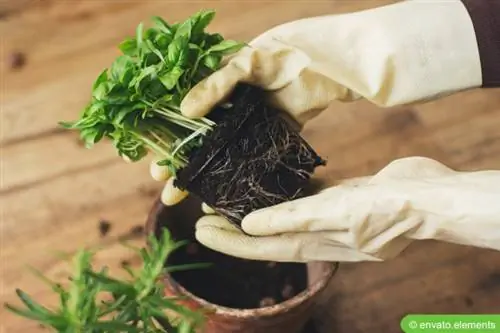
Tip:
If it turns out that the pot ball is completely rooted, it makes sense to repot the plant at home, ideally immediately after purchase.
Choose the right location
As soon as the basil is at home, it should be given a suitable location. This includes both lots of sun and warmth. In winter it has to stay indoors, in summer it can also be kept outside as long as it can be protected from the rain. A place in a greenhouse or cold frame is even better, as long as there is good ventilation. If basil is left too cold, black spots or spots may appear on the leaves. This is an indication that the leaves have frozen.
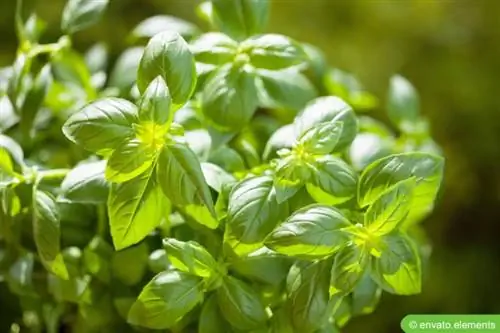
However, too much sunlight in summer can also lead to leaf discoloration. That's why the herb should never be placed directly in the midday sun or at least slowly get used to it.
Optimize care
Caring for basil properly is not that easy. When caring for basil, please note the following points:
- be careful when watering
- It's best to only water from below
- don't let it dry out
- preferably use rainwater
- fertilize weekly during the growth phase
- don't use too much fertilizer
- makes the herb more vulnerable
- harvest regularly and prune
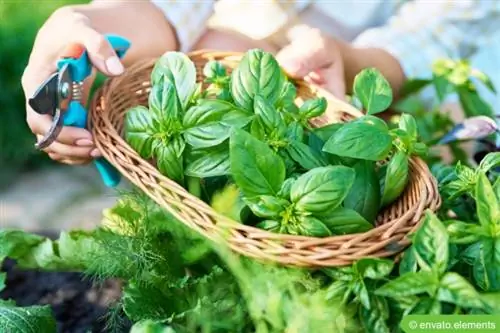
Detect and treat diseases and pests
Especially on sensitive plants or those that are poorly cared for, the black spots can also indicate a fungal disease. It is almost impossible to find out exactly which mushroom it is. Fighting it is just as difficult. The only sensible first aid measure is to cut back the plant. This involves removing any leaves that have spots. Afterwards, the plant must be cared for well, only then will it have a chance of successfully defending itself against the fungus.
Note:
The fungus should not be treated with appropriate products from the garden supply store.
Pests rarely cause black spots, but they can weaken the plant to the point where it becomes sensitive to other things. That's why regular checks for pest infestation are important.
Frequently asked questions
Can you still eat basil with black spots?
If it is not a fungal disease, the leaves can still be eaten. However, it can be assumed that their flavor is no longer very great. Especially if the black spots are caused by too much cold. Basil then quickly loses its aroma.
Do other potted herbs also get black spots?
There are other potted herbs that are sensitive to cold and these can actually get black spots. In addition, fungal diseases are sometimes contagious, so diseased plants should be placed separately.
Is home-grown basil more resistant to black spots on the leaves?
Usually home-grown basil is not as sensitive as purchased basil. This is due to the different growing conditions and the fact that purchased basil has been transported for a long time, during which no one pays attention to consistent environmental conditions. Even if the potted herb is in the store for a long time, it often doesn't have the best conditions there. In addition, it is easier to grow a variety that is resistant to fungal diseases at home.

